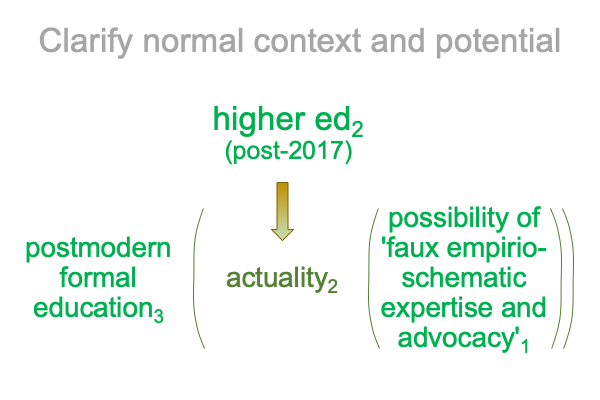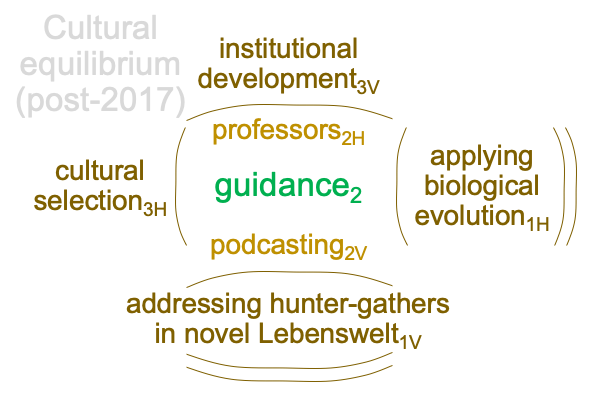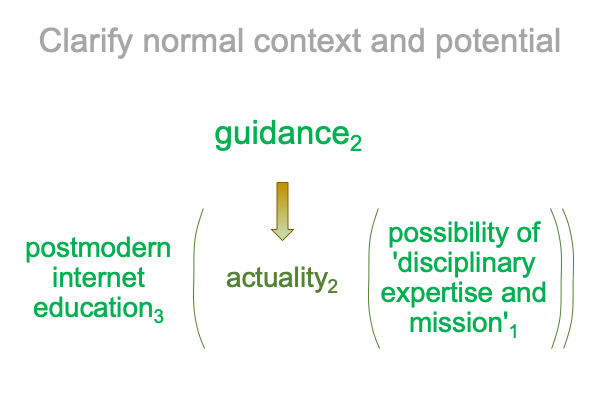0065 Here is the first picture of cultural equilibrium after 2017.

In this cultural equilibrium, administrators2H, not faculty, adapt to the niche of an education system composed of instructors1H. Heying and Weinstein depart.
Here is a picture of how I configure the normal context3 and potential1 for the single actuality of higher education (after 2017)2.

0066 Where do Heying and Weinstein migrate to?
They enter another cultural equilibrium, discussed before, where professors adapt to the challenge of applying the lessons of biological evolution to life in the 21st century. The metaphorical genome of podcasting are individuals who sense that our current Lebenswelt is not the same as the Lebenswelt that we evolved in. We are adapted to the lifestyle of hunters and gatherers. But, that is not all, we are also adapted to the potential of triadic relations.
Here is a picture of a new single actuality2, guidance.

0067 Here is a picture of how I configure the normal context3 and potential1 for the single actuality of guidance (after 2017)2.

0068 Listening to a darkhorse podcast is more rewarding to a team of moderns (remember hunters and gatherers work in teams) than attending a formal lecture by an instructor who is grading on the curve. How so? The darkhorse podcast is a conversation geared to draw people into conversation. In the course of conversation, one learns information and how to be a member of a team. If one becomes a member of the podcast community, one joins the team.
The cost is small, compared to a college course.
0069 The exorbitant cost of higher education pays tribute to the long-held belief that certification opens the door to professionalism.
So, what happens when podcasts offer alternate certification?
Then, guidance2 will directly compete with higher education2.
